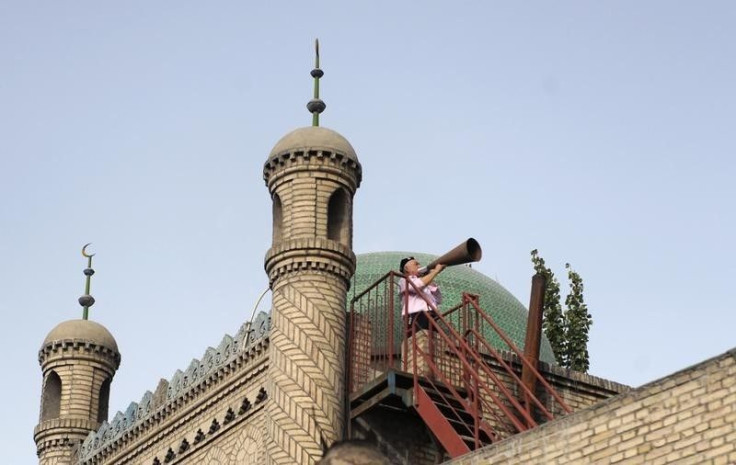China Curbing Religious Extremism: New Rules Hope To Prevent Jihadist Influence

China has toughened its restrictions on religious expression in the far western, Muslim-majority Xinjiang province in response to a perceived increase in jihadist activity there. New regulations passed by the Xinjiang People’s Congress Standing Committee will prohibit individuals from wearing or ordering other people to wear clothes and logos or spreading doctrines, manifestos or propaganda associated with religious extremism.
According to the state-run China Daily, the new rules, which are an amendment to existing laws, will be enforced at the beginning of the new year and are a response to increasingly savvy jihadist recruitment tactics. “The old regulation, which was passed 20 years ago, just cannot handle new situations, such as the spreading of terrorist or extreme religious materials via the Internet or social media and using religion to interfere in people’s lives,” said Ma Mingcheng, deputy director of the Xinjiang People’s Congress.
Ma said religious extremism is defined as activities or comments that “twist the doctrines of a religion” and encourage violent or extreme behavior. According to the new rules, local officials have the authority to use their own discretion and ask individuals to remove clothes or logos that they think falls into this category, because specific logos and types of clothes are not outlined.
Ma also said the new rules will help distinguish illegal religious activity from religious practices that are protected. “The revised and new articles all target the most urgent and unique problems in Xinjiang’s religious affairs and are very practical,” he said. “We want people to know what religious activities are protected and what needs to be stopped.”
For now, permitted religious activities are restricted to officially registered churches, mosques and temples. Religious practice — even if not “extremist” — in government offices, public schools, businesses or institutions is considered illegal.
An al Qaeda propaganda magazine published an article about the Islamic community in East Turkestan, as the indigenous Uighurs call the Xinjiang territory, calling it an area that needs to be “reclaimed” by the Islamic caliphate. But in a previous interview with the International Business Times, Alim Seytoff, president of the Uyghur American Association and director of the Uyghur Human Rights Project, said, “This is not going to happen because Uighurs do not share their ideology.”
© Copyright IBTimes 2024. All rights reserved.





















